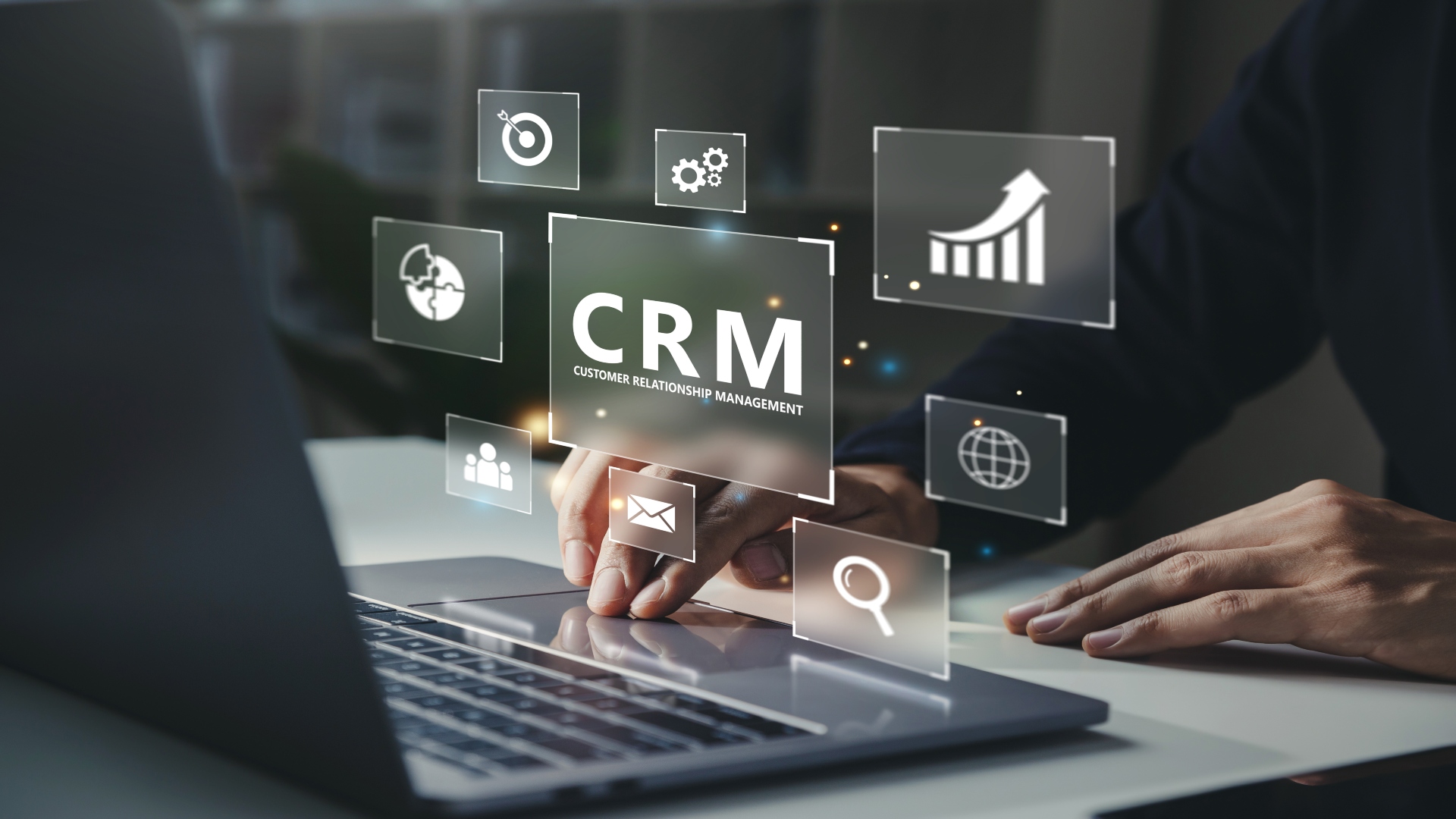Meet Kate.
She owns a small consulting business in London. Kate gets a headache everyday because of how tough it is to juggle customer data and handle customer relationships.
And guess what? She still has to do other administrative tasks, from serving customers to collaborating with her team.
Kate finds out about customer relationship management (CRM) software, and she is awestruck.
She can use the CRM tool to improve her customers’ experiences and increase sales. She can even increase her team’s productivity and run targeted marketing campaigns. How amazing.
But before investing in a suitable CRM, she needs to know what exactly customer relationship management software is, how it works, and why she should subscribe to a CRM for her small business.
If you’re like Kate, then, this blog is for you.
Keep reading.
What is CRM Software?
Customer relationship management software is a tool that helps businesses centralized customer data, interactions, and preferences to optimize customer relationships.
CRM software allows you to be intentional about nurturing your customer relationships and creating meaningful customer experiences.
Padraig O’Connor, a marketing expert with experience in the SMB sector explains how a CRM is a vital part of a modern marketing tech stack. “A CRM isn’t just a database, it’s a bridge to stronger customer relationships, boosting sales and loyalty in one powerful platform. When implemented correctly and with the right marketing strategy it can drive customer acquisition, retention, and revenue.”
It’s simply the interactions customers have with your brand from the beginning to the end of their buyer journey.
With a CRM, you can structure these processes for customer engagement, and interaction and elevate customer experiences that would lead to increased conversion.
How does CRM software work?
Most CRM software has web versions of apps with different components that work together to improve customer relationships. They are designed to appeal to customers and business needs
- The sales component: organize data about previous customer sales, sales interactions, and revenue generated from each client. Also, automate sales forecasts and calculate profit by subtracting total costs from the total revenue.
- Customer Service component: Cater to the customer satisfaction needs. It may include a knowledge base that allows text-to-video and audio transcription so that every customer can access it despite their special needs. It could also be an AI or Bot-powered live chat and a FAQ section.
- Marketing Service component: Enable companies to convert leads, appeal to potential clients, and retain clients. CRM software stores previous customer purchase history and can connect with leads to track them.
- Community component: Some CRM tools allow you to create a platform or integrate apps where you can build a community for all your customers and interact with them in real-time. Some of these tools also allow the customers to converse with each other and you gain better product engagement.
- Analytics component: What’s the use of data if you can’t analyze it? With a CRM tool, reporting and analytics is automated and you can save time to perform other business tasks. Metrics such as click-through rates, churn rates, and even demographic data can be analyzed in a simple way.
You can combine all these platforms or components to give you an all-in-one magic tool. O’Connor tells us that CRM systems made for small businesses are generally easy to use and affordable. “There are close to two thousand CRM software companies out there and many specifically serve small to medium sized businesses. This gives small businesses plenty of choice to select a CRM that meets their needs.”
Now that you know how a CRM tool works, let’s see why you should get one for your business.
5 Reasons why you should invest in CRM software
As seen from the components of CRM software, the benefits cut across every component of the software.
Here are five benefits that prove that CRM software is worth your money.
- Tailored marketing strategies
One most celebrated benefit of using a CRM tool is that you have data to make marketing decisions. You can clearly define your target audience and reach out to them in a tailored manner. O’Connor explains that most CRM systems offer an email marketing component that can be used to nurture prospects and turn them into paying customers. “Using the features of a CRM like email and social media marketing offers a low to no cost means for small businesses to do marketing”.
Hence, CRM enables you to run these targeted marketing campaigns for your business as it segments customers based on their preferences and behavior.
You even get demographic data for more effective and personalized marketing efforts.
For instance, if you target customers in the UK, you can create content that appeals to their specific demographic. Little wonder that 41% of UK companies’ marketing budget was spent on content marketing.
- Increased sales
The sales component makes CRM software a great asset for small businesses. Most CRM tools give you automated sales reports and sales performance.
CRM also assists in tracking leads and managing the sales pipeline. It provides insights into sales activities, helping businesses identify opportunities for growth.
A survey by business.com showed that 51% of small businesses that adopt a CRM see an increase in lead conversion rates.
CRM also helps you manage leads effectively, increasing the likelihood of conversion through targeted follow-ups and personalized interactions.
By understanding customer needs and preferences, businesses can use CRM to implement loyalty programs and optimize sales strategies to retain existing customers.
- Better user/customer experience
Small businesses can use CRM to enhance customer support. Many users who have issues love it when you address their issues immediately.
So, when you automate the process, communication with customers is a breeze. You can set automated and personalized responses with targeted messages that contribute to better customer engagement.
You can also prevent the recurrence of issues by tracking customer reports, managing communication channels, and ensuring timely responses. This leads to improved customer experience.
Also, product engagement becomes easier for customers as you can automate product tours, get answers to questions, and receive suggestions from customers.
O’Connor highlights that CRM systems also help small businesses comply with regulations. He says “GDPR, the EU’s data privacy law, grants EU citizens control over their personal information. Businesses must gain explicit consent before marketing to prospective customers and CRM systems help capture and track this consent helping small businesses to be compliant in an organized manner.”
- Improved project management:
With CRM software, you can skyrocket the productivity of your team. Every team member can see the customers’ data and the collaboration time is significantly reduced.
The central database saves time and ensures transparency. You can also automate your team’s daily tasks.
CRM streamlines various business processes, from sales to customer support and even marketing research, thereby improving overall efficiency and reducing manual work.
- Structured data analysis and reports:
Data analysis and reporting don’t have to be manually done when you have a CRM.
The platform gives you a structured data analysis and report. You can find out the click-through rates, churn rates, and demographic data in record time.
These analytics tools also provide valuable insights into customer behavior and sales performance, forecasting business trends.
Choose the best CRM software for your small business
There are lots of factors to consider before choosing the best CRM software for your business. You should choose software that is cost-effective and caters to your team and customer base.
Also, choose software that has the component that’s most important to you.
Once you’ve got a software that suits you best, set it up and integrate the applications that enhance its performance, and then, get started.








